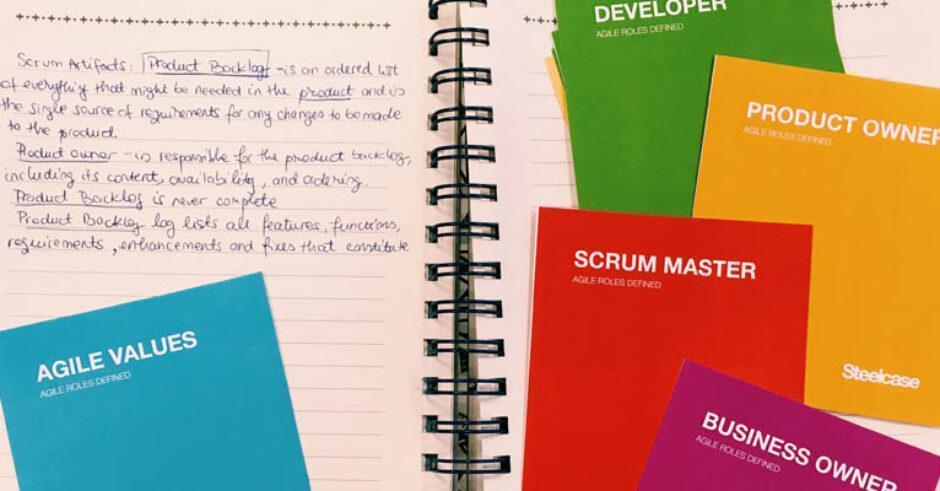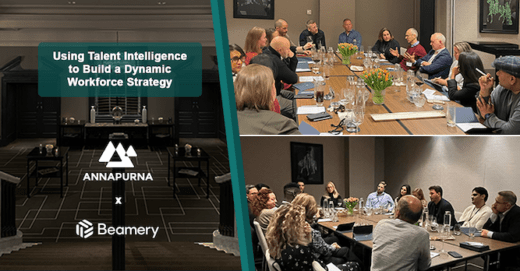If you’ve been around for a while, you’ve probably heard us talking about the need for businesses to be agile. If not us, you’ve almost definitely heard the term from someone else. But just in case you haven’t – ‘agile’ in business means you have the ability to adapt quickly to change, and respond rapidly to customer demands. It’s survival of the fittest, in the most fundamental way. And if 2020 has taught us anything, it’s that businesses need to embrace agility if they want to survive the hard times. So now, with our sights set on 2021 and a (hopefully) better year, it’s time to ask yourself – what does being Agile mean for businesses in 2021, and how can you achieve it?
Responding to the Unexpected
It’s safe to say that no one expected a pandemic to happen, or the widespread impact it would have – so no one really had a plan for dealing with one. But we also don’t expect fires or earthquakes or floods, but as businesses we have plans for those – it’s called ‘disaster recovery’, and one of the key tenants of good business planning. Now we’re not saying you should go and add ‘pandemic’ into your DR plans, but you should take a look at your business plans, and see where you could have done things differently. Covid-19 has uncovered the fact that many businesses and industries (particularly retail) were not fit to adapt and pivot quickly to the implications of having to close their doors, to adjust their supply chains and to change their delivery models.
When you’re writing up your new disaster recovery plan for 2021, you need to include that ‘what if’ question in a lot of new ways. Ask yourself how your business could still flourish if you had to close your physical doors for a few months? What would you do if a major link in your supply chain was suddenly removed? Disaster recovery is about more than just natural disasters – you also need to have the ability to respond in an agile way to other business interruption.
Improving Online Experience
When the country went into lockdown, the national average for spending rose 250%. This is mainly because without the ability to go to physical shops, people were forced to turn to online shopping when they needed supplies, activities, or just a way to alleviate the boredom of staying indoors. This highlighted the businesses that had the infrastructure in place to respond in an agile way, and those that didn’t. Retailers who had bricks and mortar locations, but no online presence struggled to survive – or didn’t. Whereas those with online shopfronts – or who built them very quickly – were able to adapt and keep the sales coming in.
The online experience for customers has never been more important, and whether you’re selling shoes or consulting services, people are more geared to buy online than ever before. Importantly, this is as vital, if not more so, for services delivered internally within companies. This is because the teams within your business will be using your systems, processes and tools on a day-to-day basis. So if the solutions, software and processes within your business aren’t delivering the experience they need, they will struggle to deliver the performance you want from them. While they can’t ‘shop elsewhere’ like external customers when they encounter a bad customer experience, their performance will drop. If you want to see highly productive employees, you need to focus on improving their experience as well.
So if you haven’t already, embrace the multi-channel approach and invest in a good online experience for your customers, this has many benefits. It will not only help boost your customer satisfaction, but it is shown to speed up processes and it might even help insulate you from the impact of any future lockdowns during the current crisis.
A Culture of Continuous Improvement
We’ve talked about this before, but creating a culture of continuous improvement is one of the key tenants of a successful, agile business. Never wanting to settle for what you have, and instead constantly looking for ways to improve, and instilling that view in everyone who works within your company. This not only means you will be able to spot new ways to react to the market much quicker than your competitors, but your business will be ready to adapt and enact change at a moments notice. This means taking the time to review your performance in all areas at regular intervals, brainstorming new ways of doing things, and implementing small but consistent, positive changes. Do this, and your organisation will be stronger than ever in a years’ time.
If you want a real-world example of the power of continuous improvement, look no further than Toyota. They embedded a continuous improvement culture just after World War 2, and have improved consistently year on year, growing to be one of the biggest manufacturers in the world. Toyota identifies over 1 million improvement opportunities per year and implements over 90% of them.
Ultimately, embedding continuous improvement into your company culture is a tricky thing, as it requires a new shift in culture and not just a process. It requires you to keep one eye on the long-term vision and making sure all of the steps you take lead towards it, and the other eye on relentless improvement. The great news is that this goes hand in hand with the agility, as it compliments iterative delivery, so you can kill two birds with one stone.
The key benefit of agility is that you can respond to change. Projects that deliver great results can quickly scale up, and those that don’t can be wound down at MVP stage and the resource shuffled elsewhere. At Monochrome Consultancy, we work closely with our clients to transform their businesses, helping them not only design tailored agile ways of working, but embed them as well. We successfully deliver change, projects, and digital transformation, and we would love to help you be ready to take on anything 2021 can throw at you. If you would like to know more, just get in touch with us today.
———————————-
Daniel Wright founded Monochrome Consultancy, specialising in Digital Transformation, IT Transformation and Project & Programme Delivery.
With his background in IT and InfoSec Dan is a techie at heart.
For more on Dan and/or Monochrome visit: www.monochromeconsultancy.co.uk





